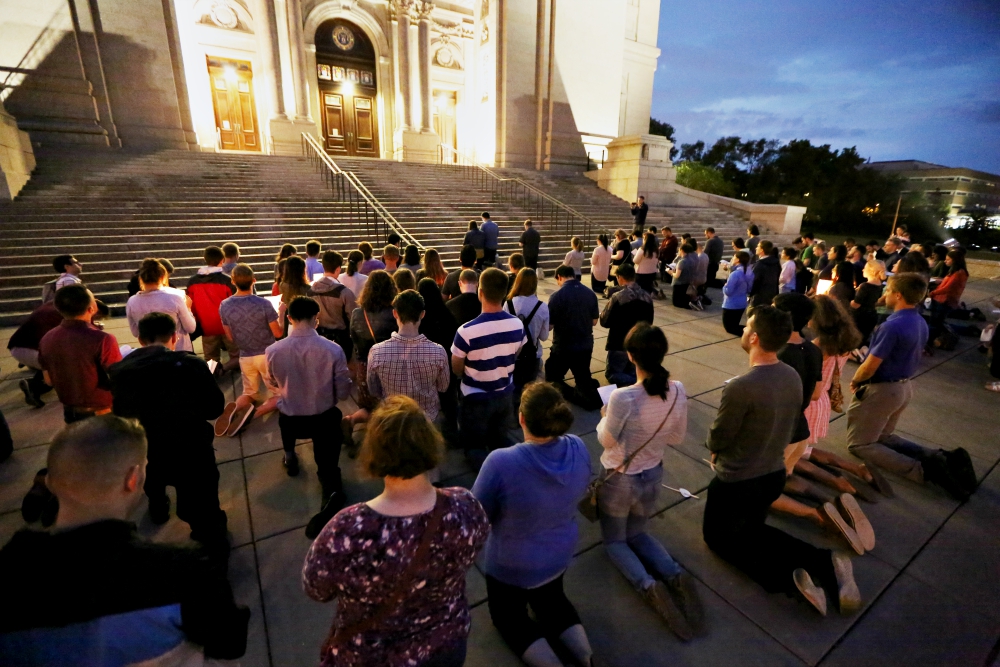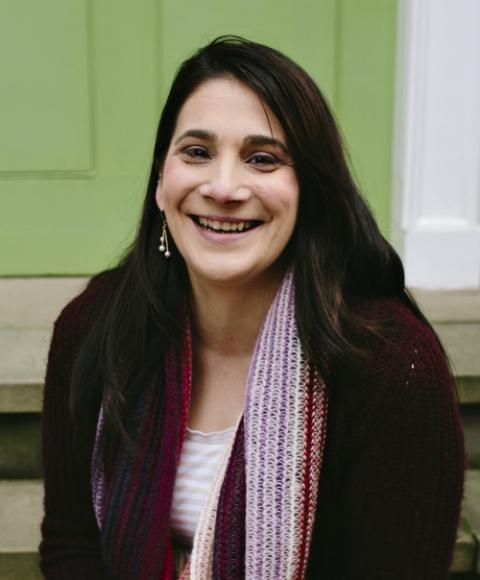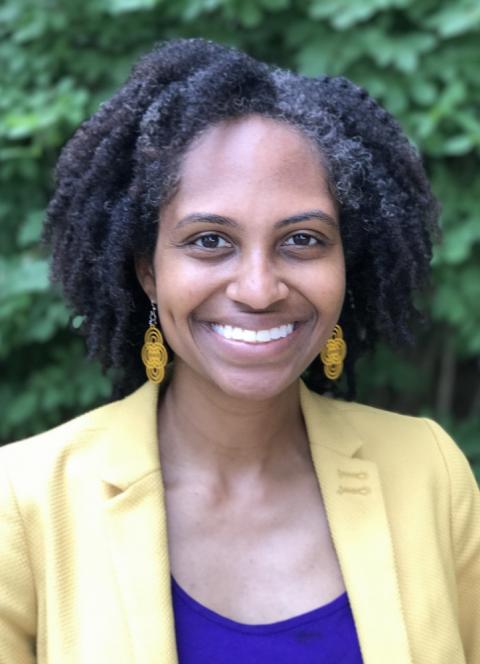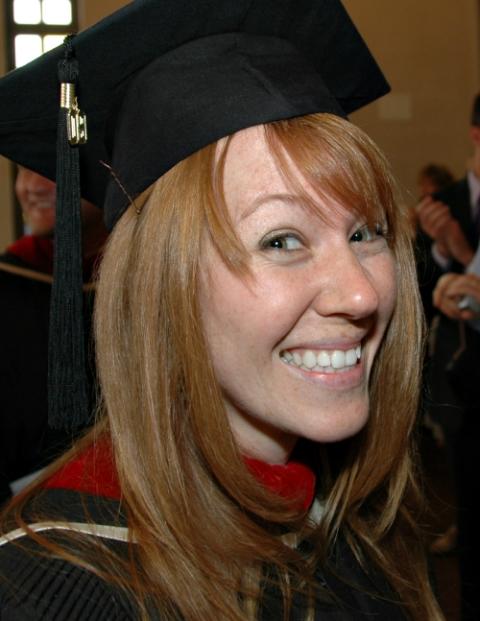
About 120 young adults kneel and pray at the Cathedral of St. Paul, Minnesota, Aug. 20 during a vigil called "Evening Prayer for the Survivors of Clerical Abuse and the Healing of the Church." (CNS/The Catholic Spirit/Dave Hrbacek)
While working as a camp counselor this summer, Alicia Biel cut back on checking social media. But now that 19-year-old sophomore is back to school, she has caught up on the Catholic news she missed these past months. And she is angry.
"When you tell people you're Catholic, the first thing they say is, 'What about the sex scandals?' " said Biel, a student at Appalachian State University in Boone, North Carolina. "I can defend the Catholic faith, but I can't defend the Catholic Church right now. It's hard."
Biel was 4 years old when the sex abuse crisis erupted in Boston, so she has never known a church untainted by this scandal. But this summer's news — about former Washington archbishop Theodore McCarrick; from the Pennsylvania grand jury report; and, now, of unproven allegations of cover-up against the current pope — have put the issue front and center for her and for many young Catholics.
With surveys that show increasing numbers of young people leaving the church, it would seem these recent revelations would be prompting an even greater exodus. But, surprisingly, young Catholics who spoke to NCR are not giving up.
Instead, inspired by a post-Vatican II ecclesiology, they are planning to stay and fight for reform of the power structures that allowed abuse to happen and that protected church leaders who tried to cover it up.
At Alvernia University in Reading, Pennsylvania — located in the Allentown Diocese, one of the six dioceses covered in the report — a service of healing was among the back-to-school events planned on campus. Four priests named by the grand jury had been part-time adjuncts at the school in the 1960s and 1980s, although no victims from the school have come forward yet.

Julianne Wallace (Alvernia University)
Julianne Wallace, assistant to the president for mission* at Alvernia, reached out to student leaders even before classes started, to check in and see how they were processing the horrific details about clerical abuse in the state. When she asked them if this deterred them from wanting to be Catholic, they emphatically said no.
One student told her: "Yes, I'm going to be at church on Sunday. That's where I've always been." The student agreed the institutional church had acted unjustly, but wanted to stay and try to work for change.
That's not to say that young Catholics are not upset, Wallace and other young Catholics said. They are, but many of them are funneling their anger into action.
Last weekend, Catholics in seven cities across the country gathered for demonstrations or public prayer services against sexual abuse and cover-up. While the events attracted participants of all ages, the organizer was a 32-year-old from Chicago.
Adrienne Alexander started a Facebook page called "Catholics for Action" after going to Mass for the feast of the Assumption Aug. 15, the day after the grand jury report's release, and hearing nothing about it from the priest at the parish (not her home church).

Adrienne Alexander (Provided photo)
"I felt very strongly that it was important for people outside the church to see that Catholics who sit in the pews every Sunday are not OK with this," said Alexander. "And I wanted the bishops to see that we make up the church. I was very disappointed by their first response."
Alexander was a junior in high school in Georgia when the crisis was centered in Boston in 2002. "I feel more ownership at this point in my life," she said, noting that, as a young African-American woman, she is the only one among her friends still connected to institutional religion "It's almost countercultural that I go to church every Sunday."
Yet, what the current scandal is not about, for most young people, is homosexuality. Biel said she has noticed that older Catholics are focused on homosexuality and gay priests when talking about McCarrick or details of abuse by clergy in Pennsylvania.
"I think we should be focusing on that these were nonconsensual rapes, not on homosexuality," she said.
The use of the more explicit terms like "rape" and "molestation" is more common among younger people who have grown up with "safe environment" training and have been influenced by the #MeToo movement, Biel believes. "We're not going to try to sugarcoat it by calling it 'abuse,' " she said.
In fact, young people's opposition to the church's teaching about homosexuality is one reason that some of them leave the church, according to a survey on disaffiliation released in January by St. Mary's Press and the Center for Applied Research in the Apostolate (CARA) at Georgetown University.
The sex abuse crisis — surprisingly — is not a major reason so-called "nones" would choose that as their answer to a question about religious affiliation, said John Vitek, president and CEO of St. Mary's Press.
"When we asked adult leaders why they think young people disaffiliate, they often guess that clergy sex abuse would be a top issue, but it's not," Vitek said. "In fact, only about 2 percent of young people we surveyed articulated that."
But young former Catholics do mention "moral failures" or injustices in the church, Vitek said, which could include bishops covering up sexual crimes by clergy.
Advertisement
And disaffiliation often happens after an accumulation of things that erode trust in the institution, which may explain why this summer's news is the last straw for some older Catholics, and less so for younger ones, Vitek said. "While it may not cause someone to walk away today, it causes them to wonder if this is the community they want to be associated with," he said.
Timothy O'Malley, who teaches at the University of Notre Dame, agrees that while the sex abuse crisis may precipitate formal leaving for some, those Catholics were "on the margins" and perhaps not practicing anyway, sometimes because of disagreements over church teachings on sexuality, marriage and divorce.
In fact, of the 150 students in his course on the sacrament of marriage this fall, only one mentioned in a required "theological biography" that he had doubts about the church related to the present crisis.
Although admittedly a nonrepresentative sample, O'Malley's students appear committed to the church. "They seem to love the Eucharist. They are looking for a spiritual tradition to guide their lives," O'Malley, director of Notre Dame's Center for Liturgy, said in an email interview with NCR. "Even those who struggle with the church's teaching on homosexuality still want guidance from the theological richness of the church."
O'Malley was one of 43 signers of "An Open Letter from Young Catholics" published by the conservative journal First Things after McCarrick was removed from the College of Cardinals. That letter stressed dismay over and called for an independent investigation of sexually active priests, sexual assault of seminarians, and even "drug-fueled orgies in Vatican apartments."

Annie Selak (Flickr/Bill Selak, CC BY-ND 2.0)
Later, a group of young theologians organized another statement — eventually signed by more than 5,000 Catholics of all ages — calling for the mass resignation of all U.S. bishops, in light of the McCarrick allegations and those in the Pennsylvania grand jury report.
Annie Selak, a theology doctoral candidate at Boston College, signed that statement, which was conceived of and shared widely on social media, where many young Catholics gravitate.
For Selak, the Pennsylvania report was a "breaking point," not because it was new, but precisely because it signaled to her that the church doesn't seem to have changed.
"My entire life in the church has been marked by sexual abuse and cover-up," said Selak, noting that the priest who baptized her was charged with 38 counts of molestation and eventually committed suicide.
"That's part of why the younger generation is having a different response: not because it's new information, but because it's the only story of the church we've known," she said.
But as 35-year-old Selak prepares for the baptism of her first child in about month, she realizes that younger Catholics who stay are seeing this moment as a "call to action."
"Younger people are asking what we can do to make sure this isn't the church," she said. "There has to be more to the church than this."
[Heidi Schlumpf is NCR national correspondent. Her email address is hschlumpf@ncronline.org. Follow her on Twitter @HeidiSchlumpf.]
*This story has been edited to correct Wallace's title.







